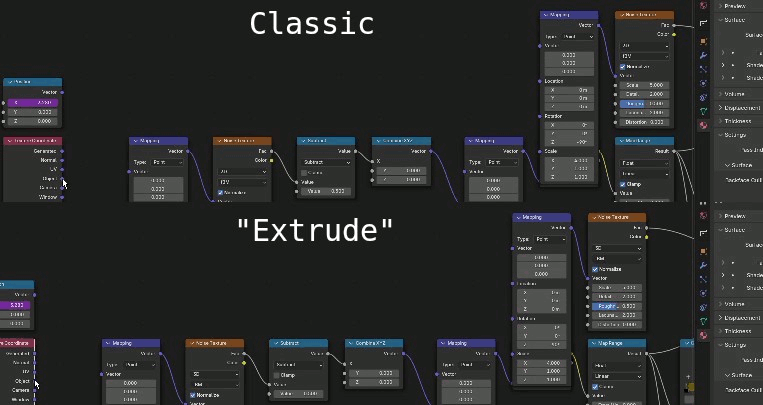I mean, it's equivalent to the minimum salary i guess. I think they're european, and in france the minimum salary is around 1800€ before taxes. That's not a lot in the absolute, but in the foss world, it is quite comfortable.
Takapapatapaka
Clearly it's some kind of [perpetual stew] (https://en.wikipedia.org/wiki/Perpetual_stew?wprov=sfla1) of yeast, which would make a good name for an obscure local band of extreme metal
I think this is just a difference on the form, and not on the content.
When over half of the country is actually ducked in the ass because of either poor working conditions, womens absence of right, slavery, etc., saying "I don't think we should change anything" seems like a calm way to say "we disagree on how to improve the country" when really it's just saying "i want people to get fucked". Betterment, even little, of life for those people makes assholes say out loud the hate they could hide in the statu quo previously.
For long distance access, i always used parsec, though i'm not sure how secure it is.
People already explained that salt was relatively easy to get, steps to make bread are not that complicated and probably occured through trial and error, and for ale, it's quite probably just cereals left to soak in water too long + natural yeast and you get an accidental alcohol. The trickiest part is to finetune the process to make it a bit consistent, but finding it out is very easy
I'm not a technical person, so i don't really know, but from a blog i read about switching from lemmy to piefed, i guess there should be some problems :
I also changed the URL from jemmy.jeena.net to piefed.jeena.net because I don't want the other instances to be confused when suddenly a different software with different contents is available under the same domain. But I'm thinking to start up Lemmy and unsubscribe from all communities and to delete the one community I have on my Lemmy instance which has only very few subscribers.
That at least would be a somewhat clean way to dispose of this lemmy instance. Oh and I should return a 410 Gone to indicate that it's permanently gone.
I second DnD and Warhammer, and i'll add Magic the Gathering to this list
ZorinOS is the best for me, because it works out of the box, looks a lot like Windows which i'm used to, is relatively configurable and is free (the paid version is just cosmetics and prebundled additional software). I consider looking into Arch though, thanks to your post and the comments there ;)
Well we could see Hulk as the opposite of us, humble mortals : we have penises nowhere but in our pants, he is penises everywhere but in his pants.
Comments on Reddit seem to suggest that UI problems with NeuralDSP plugins seems to be solved with some onstallation of DirectX libraries (? Not sure about the technical details) :
was able to fix it just yesterday after seeing someone suggest this:
install WineGUI
use it to install DirectX 9/10/11 and DirectX 12 packages
This instantly fixed the GUI not being responsive, tested with the new Nolly X
In France, some enterprises post job offers when looking for alternant.e.s, and you can use search filters to target those types of offer most of the times, for example on pôle emploi.
I know some people who found alternances during job dating events, or other professional events. I think some administration may be helpful, either pole emploi/mission locale or the school's administration, they may have some ideas.
Edit : typos.


We should calm down attacks on db0 as well as on anti-tankies, it leads to this bs. The db0 user agrees that China is trying to erase their culture by doing bad things to Uyghurs, and just want to disengage, that's something we gotta respect. They never show acceptation of the fallacious .ml comment, on the contrary disengaging shows exasperation from it. It is only a disagreement on terms caused by hesitation on what to deduce between us propaganda and china propaganda, and yet they are treated as the enemy.
Yes genocide denial is bad, but putting them in the same box as .ml is bad too and may be a self-fulfilling prophecy.